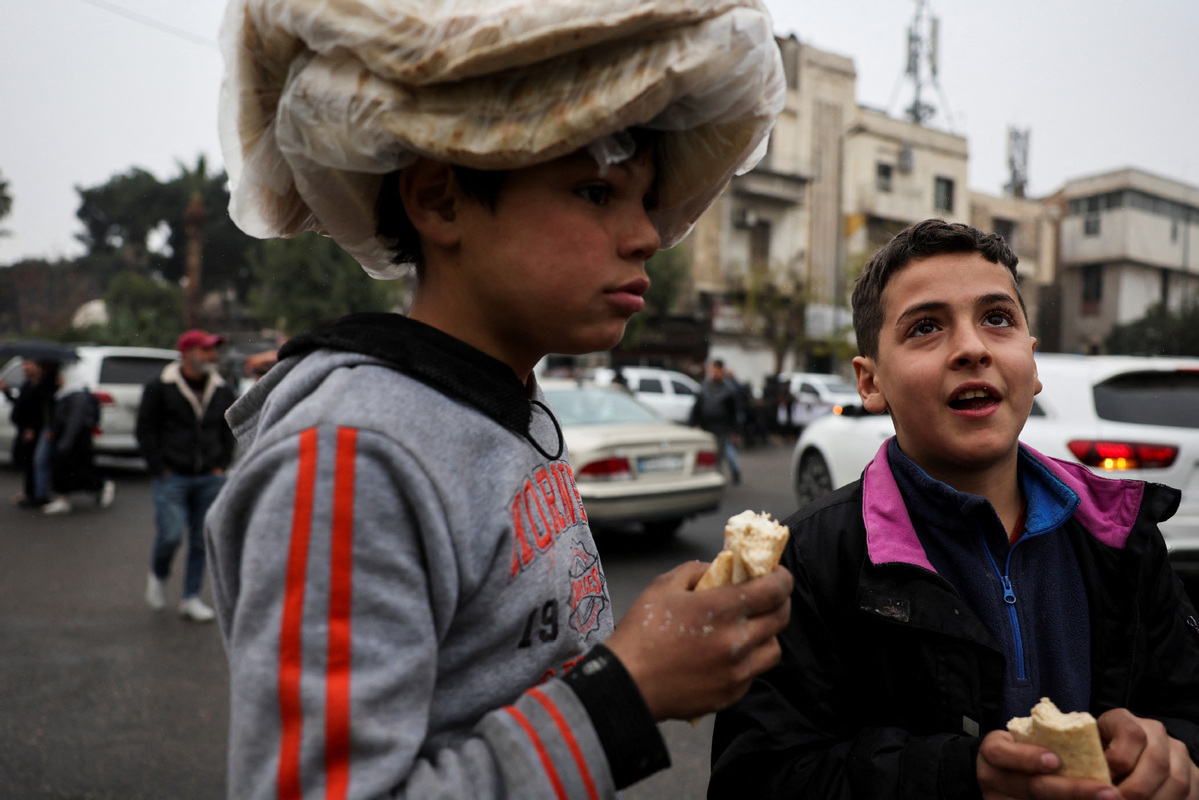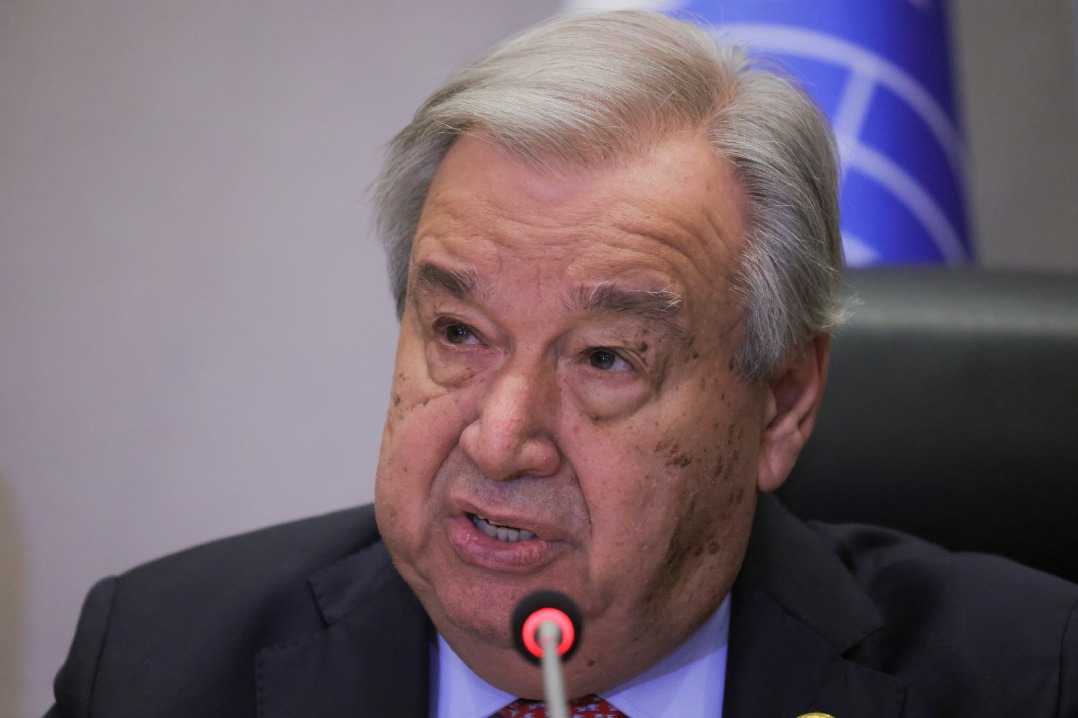Gulf states vow support for interim govt in Syria
By MIKE GU and JAN YUMUL in Hong Kong | CHINA DAILY/XINHUA | Updated: 2025-01-01 09:06

The Gulf Cooperation Council supports Syria's interim administration in maintaining unity and stability with the aim of bringing development and prosperity to the Syrian people, Jasem Mohamed Albudaiwi, secretary-general of the GCC, said during high-level talks with the country's interim rulers.
Albudaiwi, along with Kuwaiti Foreign Minister Abdullah Al-Yahya, led a delegation of GCC officials for a meeting on Monday with Syria's interim administration officials, including the de facto leader Ahmed al-Sharaa, in the Syrian capital Damascus, media reports said.
The GCC "welcomes the UN's call to establish a special mission to support the political transition process in accordance with the principles of the UN Charter to help the Syrian people achieve a Syrian-led political process", the GCC chief said during the meeting, Arab News reported.
Albudaiwi said the Gulf countries have always stressed the need to respect Syria's sovereignty, independence and territorial integrity, reject foreign interventions, and combat terrorism and extremism while respecting religious and cultural diversity in the country.
He condemned repeated Israeli attacks on Syrian territory, calling on Israel to withdraw its forces from occupied Syrian lands.
Rasha Al Joundy, a senior researcher at the Dubai Public Policy Research Centre, told China Daily that Syria cannot navigate these sensitive times without the support of its Arab and Gulf neighbors.
Qatar and Kuwait have already begun sending humanitarian aid and are exploring solutions to address the severe power shortages in Syria.
The high-level communication with Saudi Arabia and the wider GCC indicates that Syria's new transitional leadership has garnered Arab legitimacy and approval, which is crucial, alongside the potential lifting of US sanctions.
It seems everyone wants to give Syria all the tools it needs to overcome this critical period, Al Joundy said.
Electoral timetable
Al-Sharaa has said that holding elections in the country could take up to four years. It is the first time the new Syrian leader has commented on a possible electoral timetable since the fall of president Bashar al-Assad weeks ago.
By outlining a four-year timeline until elections, al-Sharaa will face challenges from civil society in Syria, Al Joundy said.
However, the new government formed after a national conference will ultimately have the final say on the election, rather than al-Sharaa alone, even if he is elected president during the conference, she said.
According to reports on Monday, the Syrian national conference is to take place in Damascus on Jan 4 and 5 to discuss the country's future. The conference is expected to establish a constitutional drafting committee and propose the formation of a new government within a month.
Meanwhile, a convoy of 60 trucks from the US-led coalition entered northeastern Syria on Monday, carrying weapons and logistics supplies to support the allied forces, Al-Arabiya TV reported.
The reinforcements come amid clashes between the US-backed Syrian Democratic Forces and Turkish-aligned factions in the region.
Hussein Talal Maklad, professor of international relations at Damascus University, told China Daily the Gulf states will focus on playing a major role in the future of Syria through political and economic reconstruction of the country and the creation of a stable political order within Syria.
Maklad said a new, free Syria is a big opportunity for Turkiye and the Gulf states. Saudi Arabia expressed the "strongest support" for Syria's people, commending measures taken by the new leadership in Damascus to promote stability, he said.
Xinhua and agencies contributed to this story.
























